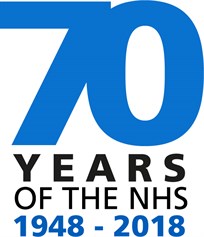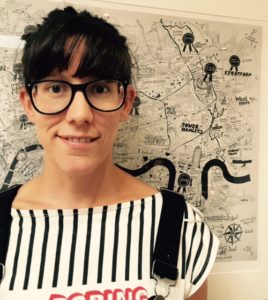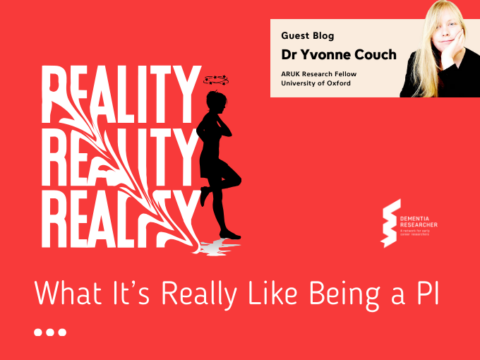Last week the NHS celebrated its 70th Birthday. Most of you will know this. Most of you will also know that the NHS is enormous. I just googled it and found one site saying the UK NHS is the 5th biggest employer in the world (in 2012). What does that mean for the people who work there and those that use this service? What is it like when compared to other countries?

Now if I were writing this blog as a piece of qualitative research I would need to qualify it with the following statement (or something similar): As a British citizen who has done most of my growing up, living, working and studying in the UK I am of course rather biased in favour of living and studying here. However, I do feel I can take a somewhat balanced view as someone who was brought up with a German father (he lives half the year in Berlin and uses the health service there when he needs to, plus my sisters both did a year of university in Germany). In addition to this I lived in Melbourne, Australia, for 5 years and completed my Masters of Clinical Rehabilitation at Flinders University, South Australia. Having declared my biases, I feel I can now continue.
From 1962 till 1997 higher education was completely free for UK residents – in terms of fees. No one paid any fees unless they were part-time or overseas students. I completed my undergraduate degree (my clinical training as a speech and language therapist) at UCL in London. We were the first year to pay our degree fees – although at the 11th hour the NHS stepped in and started funding the medical subjects (how amazing is the NHS!). Yet with a predominantly white female middle class cohort we didn’t necessarily reflect the types of patients we see in clinical settings. Some of the people who most need the support of health professionals, such as speech and language therapists, are often male (at least half if not more) and / or from lower socioeconomic backgrounds. Luckily the NHS continue to pay these fees (for now) thus ensuring a more balanced work force. My first point is simply this- that this amazing relationship between NHS England and the Higher Educational Institutions means that there is slightly more diversity in the population of health professional at present. We have mature students with life experience, people from ethnically and socio-economically diverse backgrounds. And more males (although of course this gender diversity is not dependent on the fees being paid!!).
Whilst living and working in Australia I applied to do a Masters in Clinical Rehabilitation at Flinders University, South Australia. I did have to pay for this (I was not an Australian citizen after all). But in Australia everyone has to pay to attend University (for the most part- there are some exemptions). What was pretty fantastic though, was that I was able to complete the qualification via distance learning- much of the higher education (post graduate) is delivered in this way over there. It meant I could choose the university I attended from a much bigger pool- I had a lot more options. I was also able to complete the majority of the work at times and in places that really suited me. On this course, we learnt a bit about delivering interventions via video conferencing or ‘tele-practice’ as it is often described, to rural and remote settings. This is not an unusual model over there. Although we are moving towards these ideas here in the UK I actually wonder if the NHS and HEIs could adopt more of these innovative IT methods to reach a wider group of people, and to maximise their resources. It seems like a good use of time and money that also increases access to services.
 I started work in the NHS as a fresh faced 22-year-old in east London. One of my favourite things about the NHS is that every patient I saw was provided with the same opportunities. The NHS is developed and delivered on the principles of population health. Treatments are chosen and delivered based on what works for the majority of the population. This scientific approach ensures a rigorous approach to delivering healthcare to as many people as possible across the UK. If this does not work then the next most likely approach is chosen, then again the next most likely. Symptoms are treated as evidence that point toward the cause and the solution. These are the methods that have been used to success within the NHS for the last 70 years
I started work in the NHS as a fresh faced 22-year-old in east London. One of my favourite things about the NHS is that every patient I saw was provided with the same opportunities. The NHS is developed and delivered on the principles of population health. Treatments are chosen and delivered based on what works for the majority of the population. This scientific approach ensures a rigorous approach to delivering healthcare to as many people as possible across the UK. If this does not work then the next most likely approach is chosen, then again the next most likely. Symptoms are treated as evidence that point toward the cause and the solution. These are the methods that have been used to success within the NHS for the last 70 years
The health service in the state of Victoria (Melbourne is in Victoria, one of six Australian states that each operate their health systems somewhat differently) works differently to here. It is a public-private partnership. At the time when I was working there the unions negotiated the terms of employment for the health care professionals within the state. Consequently, the networks employ everyone on these same terms, which are renegotiated every four years. For this reason, being a union member or representative as an allied health professional is usual in Victoria. Now in general patients are able to access acute and hospital care with no immediate costs to them in Victoria. But to see a GP, or to have some non-acute services (e.g. ultrasound scans when your pregnant) you were encouraged to pay and then submit for a rebate through the Medicare system. If you didn’t have the means you could go to certain GP services who bulk billed the Medicare system, but this was not so common. Most of my friends had private healthcare and received tax rebates in compensation for this.
As a therapist working in an inpatient setting I was able to provide services in much the same way as I had done previously. Although amazingly I had annual leave cover when I went on holiday and I had less constraints on the intensity and length of services I provided than I have ever had over here in the UK. However, in some outpatient and community settings we charged attendees a small nominal fee per week and we “sold” them the thickeners we prescribed (a side note: speech and language therapists prescribe thickener powder, to mix with drinks, for people with swallowing difficulties- to help them manage fluids safely). Selling thickener was a little tricky- occasionally I had to ask myself if someone was refusing to buy it because they didn’t have the money, because they didn’t have capacity or because they were making an informed decision not to follow my recommendations.
When I returned to the UK I brought with me knowledge of a different approach to healthcare commissioning and delivering education. There are pros and cons to both the UK and Australian models. Neither are perfect but I certainly feel better off for having experienced both. Working and studying in Australia afforded me experiences that boosted my confidence and expanded my horizons. I wouldn’t hesitate to do it again. But, for now I am happy to be back in the UK, in London, employed as an NIHR Doctoral Research fellow at UCL and doing a PhD.
Author
Anna Volkmer is a Speech and Language Therapist and NIHR Doctoral Research Fellow working in Language and Cognition, Department of Psychology and Language Sciences, University College London. Anna is researching Speech and language therapy interventions in language led dementia.
You can follow Anna on Twitter Follow @volkmer_anna

 Print This Post
Print This Post




